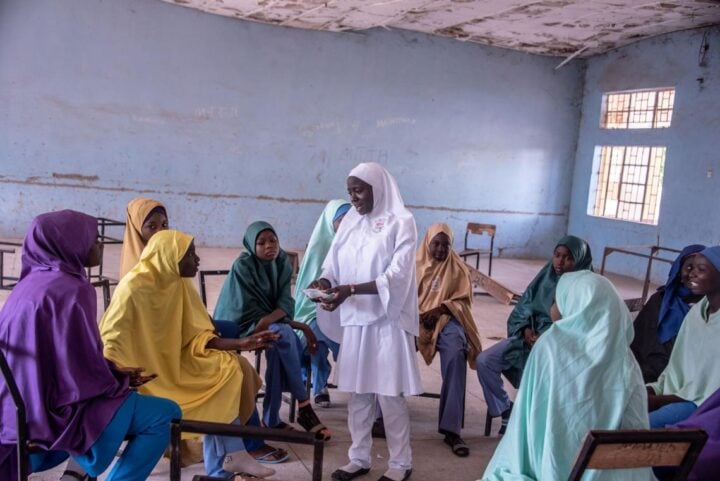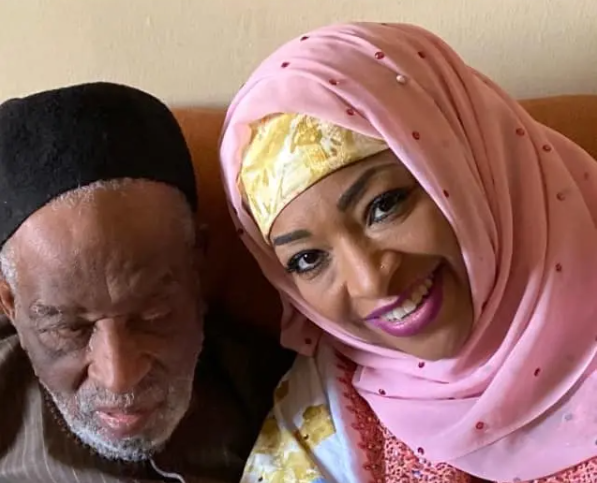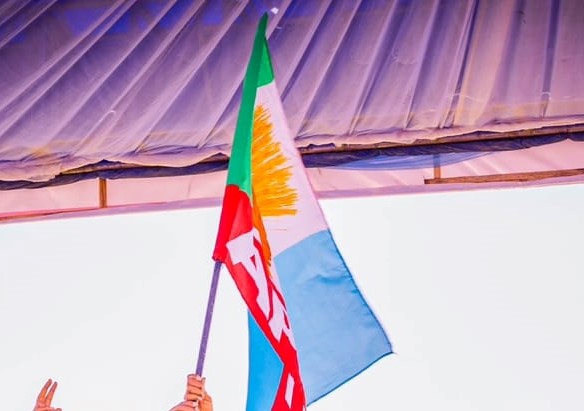Photo: UNICEF
The theme for International Women’s Day, 2023, “DigitALL: Innovation and technology for gender equality” recognises the powerful potential that digital entrepreneurship presents for women. Whether it is in new business opportunities, in making gains in the agricultural value chain, in the health sector, or in creating access to credit, markets, clients, and global value chains.
Innovation in technology solutions provides opportunities for gender inclusion in the digital economy of Africa. In 2022, Collaboration on International ICT Policy for East and Southern Africa (CIPESA) hosted the Forum on Internet Freedom in Africa. Attending the Conference for the first time opened my eyes to the vast potential for ICT in Africa and African women, specifically. The conversations in the different panels expounded on the fact that Africans are building solutions to the problems we face within our context.
Globally, 3.7 billion people do not have access to the internet. In some parts of the world, the digital gender divide has been shrinking, but data shows it is growing in Africa. The global shutdown that happened in the wake of the COVID-19 pandemic exposed us to how vulnerable we all are. It showed us how quickly things can change within a short period. A lot of jobs were lost, person-to-person interactions were limited to people living in the same house, and schools were closed.
Other people who could, had to work from home. This automatically led to the fact that the only way the world could connect was via the internet. However, this shutdown meant something different for a lot of low-income and at-risk communities. However, with schools closed, innovative education solutions were adopted. Every one of those solutions required some sort of internet access to be utilised.
Advertisement
This development implied that children without access to smartphones, laptops, or any digital device had no education. The gaps created by a majority of Nigerians having no internet access were apparent. I wonder if we have learnt from the challenges the lack of digital access created.
Nigeria’s Multidimensional Poverty Index (2022) presents worrisome data, sixty-three percent of people (33 million) are living in multidimensional poverty. The Nigeria MPI shows that poor people in Nigeria experience just over one-quarter of all possible deprivations.
This a reminder that the MPI is a frontline effort at creating an evidence-based, Data Demand and Use strategy for achieving the presidential mandate of lifting 100 million people out of poverty in a decade. The data in the MPI provides that overall, 18% of poor school-aged children experience inequalities in their household, compared to 2% of non-poor school-aged children. While 6 out of 10 girls aged 12–17 are poor, among those in child marriages, approximately 8 out of 10 are poor.
Advertisement
The Nigeria MPI among married girls is also higher at 0.338, compared to 0.256 for girls who are not married. The adoption of digital innovations to provide access to livelihood and less expensive means for education can lift a large percentage of households out of poverty, automatically lifting Nigerian children out of poverty and preventing the endemic of child brides.
Following the pandemic, the world has had to rethink the way a lot of things are done. One of which is the general acceptance that access to technology is not a luxury. Yes, we understand Africa has several underlying challenges but access to technology and ICT solutions are the next best steps to attaining the kind of economic growth we need for our development.
Worldwide, there is a digital gender divide, girls have lower access to technology than boys. In Africa, girls are more saddled with domestic responsibilities, than their male counterparts. Support for girls in STEM is limited and even where it exists, there is a lack of awareness. If we are not deliberate about bridging the gaps that arise from the digital gender divide, they are going to get wider. Further exacerbating the problems that hinder digital access for women and girls in Africa.
There will be no embracing equity if African women and girls are not included in the digital economy. We can solve poverty, health, and development gaps on our continent by increasing access to ICT solutions and the internet. Ensuring access to the internet and digital solutions is a must if we are to create and enable stronger economies.
Advertisement
While the problems that face African women’s inclusion in the digital economy are manifold, they are not insurmountable but governments and policy formulators have to make deliberate efforts to bridge the digital gender divide. How do we prioritise equitable digital access in the promotion of economic growth?
The Policy Brief on Women and the Digital Economy in Africa by the Harvard University Center for African Studies highlights a few opportunities for African development institutions and national governments for the promotion of gender-inclusive participation in the digital economy.
Some of them are:
- Prioritise equitable access to STEM education and digital education for all girls, including those in low-income communities and rural or remote areas. This means integrating more STEM requirements into the national curriculum and providing more digital learning opportunities in the classroom, in addition to guaranteeing basic numeracy and literacy skills.
- Build equitable infrastructure for internet access in communities and schools.
- Promote regional collaboration across digital technologies. The Africa Continental Free Trade Area has the potential to open up new opportunities for digital trade between countries. The digital regulatory environment and architecture should have a focus on gender inclusion.
- Co-invest in public-private partnerships that are mutually beneficial to achieving gender inclusion in tech. Private sector technology and telecommunications companies have a shared interest in improving internet access and digital learning that promote a more gender-inclusive workforce.
- Work with the private sector to collect better data on women in tech. There is a need for better, more consistent, and more transparent data on African women in tech to properly measure the current underrepresentation and account for progress moving forward.
Other low-hanging fruits for digital inclusion are:
Advertisement
- Providing small and medium business-scale women with basic technological tools and knowledge to enhance their business will create a huge impact on their local economy and subsequently the larger economies. Women have always been influential in our economies, however, digital commerce will expand the impact of their trades.
- Policies that ensure the incorporation of solutions and ideas conceptualised by women for digital inclusion are adopted. This will engage women in the discussion of ICT policy solutions in important areas.
Technology is fundamental for the growth and expansion of the opportunities that will provide equal access to economic resources, financial opportunities, and political leadership. This will irrefutably further the realisation of women’s rights in Africa.
The African Charter on Human and People’s Rights (ACHPR) provides for the Peoples’ Rights to Development (PRTD) which is both an individual and a group right. Article 22 of the ACHPR provides for PRTD by stating that, “All peoples shall have the right to their economic, social and cultural development with due regard to their freedom and identity and in the equal enjoyment of the common heritage of mankind”.
Advertisement
It goes on to say that, “States shall have the duty, individually or collectively, to ensure the exercise of the right to development”. Access to the internet and access to technology are rights to development that are not enforced enough in Africa. Sadly, the African woman is grossly excluded in this regard.
Imagine an Africa where women and girls have all the tools, knowledge, and skills, to equitably compete with their male counterparts. That Africa is possible if we do not pay lip service to #embraceequity but start to work actively to ensure the integration of digital inclusion for economic growth
Advertisement
Tsema Yvonne Ede can be reached via [email protected]
Advertisement
Views expressed by contributors are strictly personal and not of TheCable.







